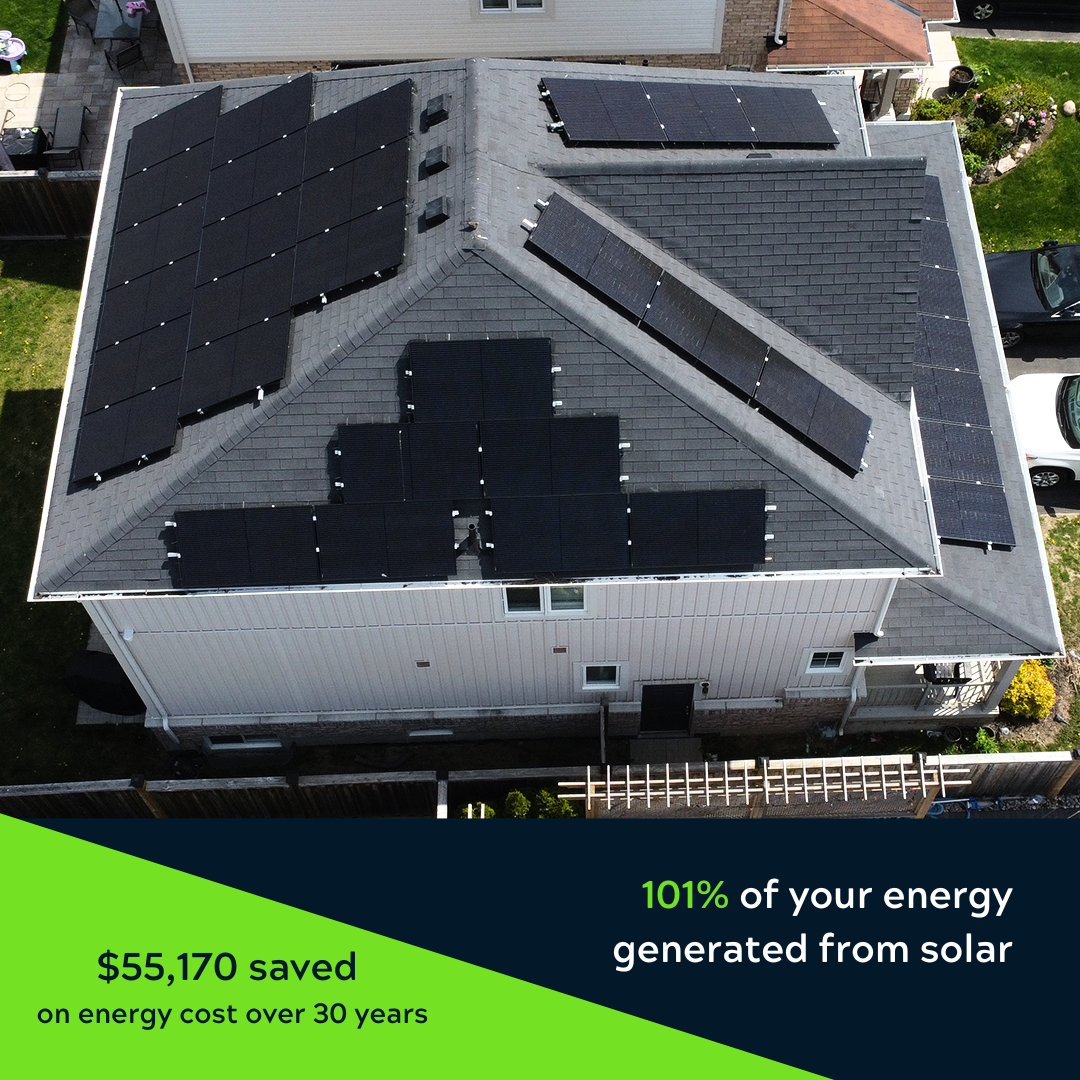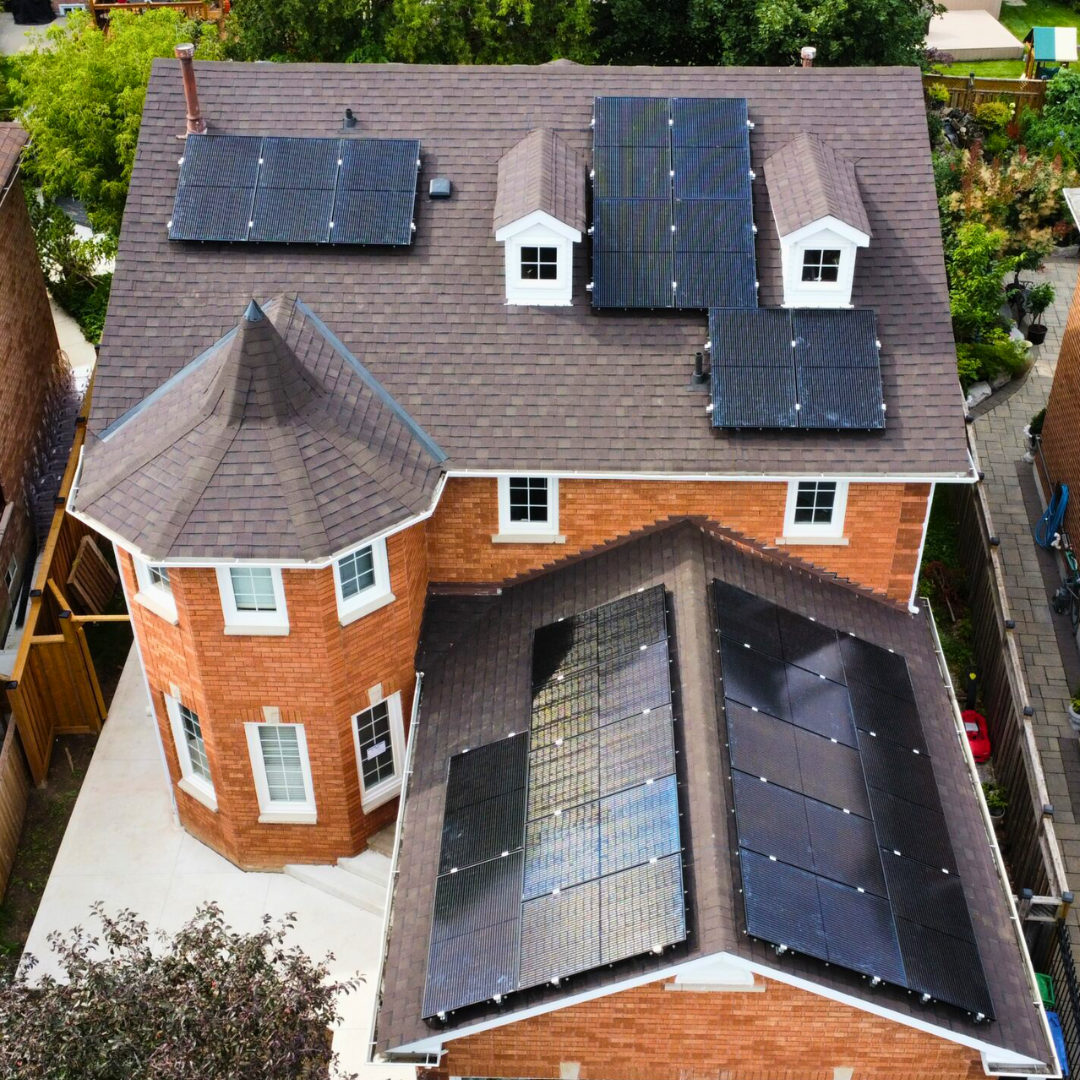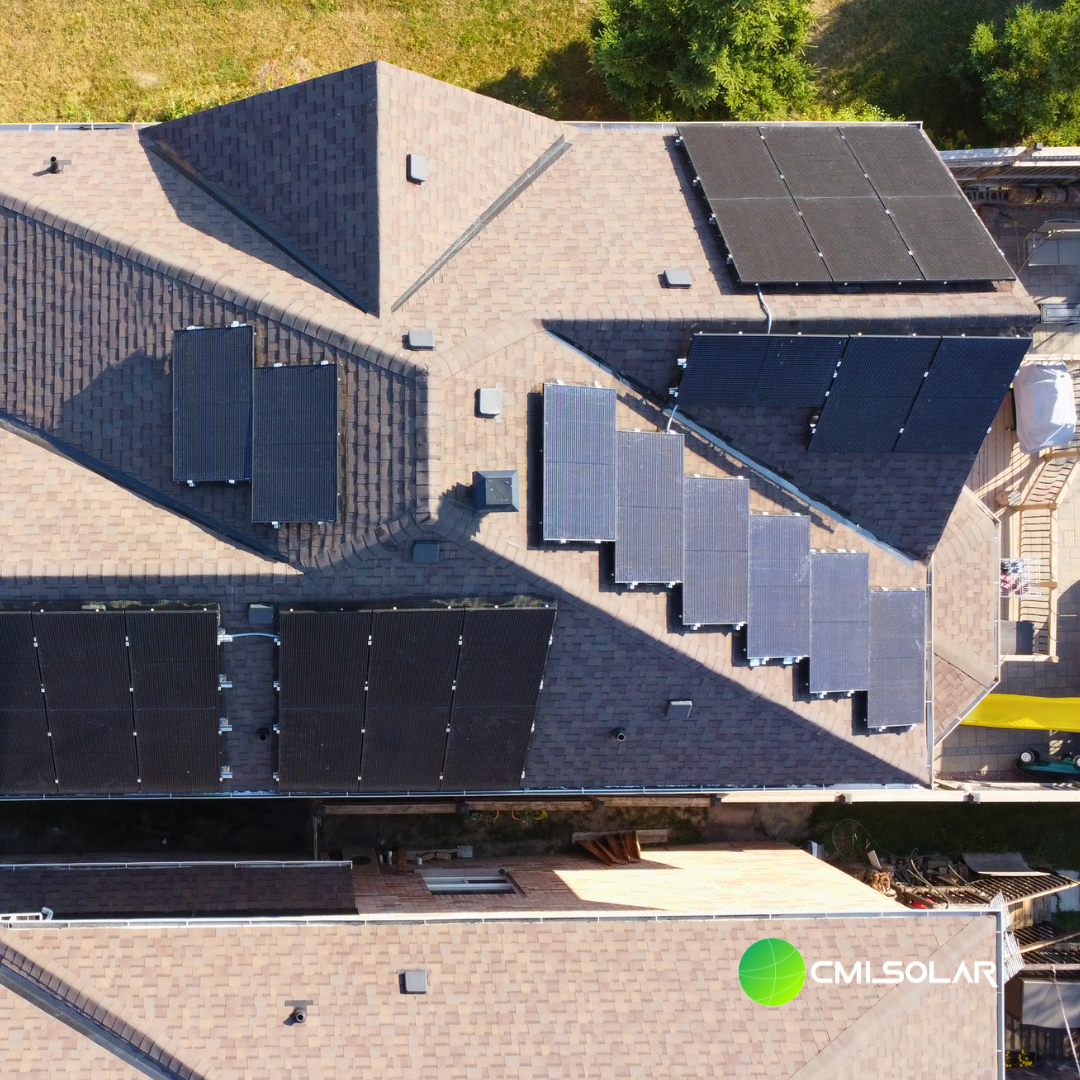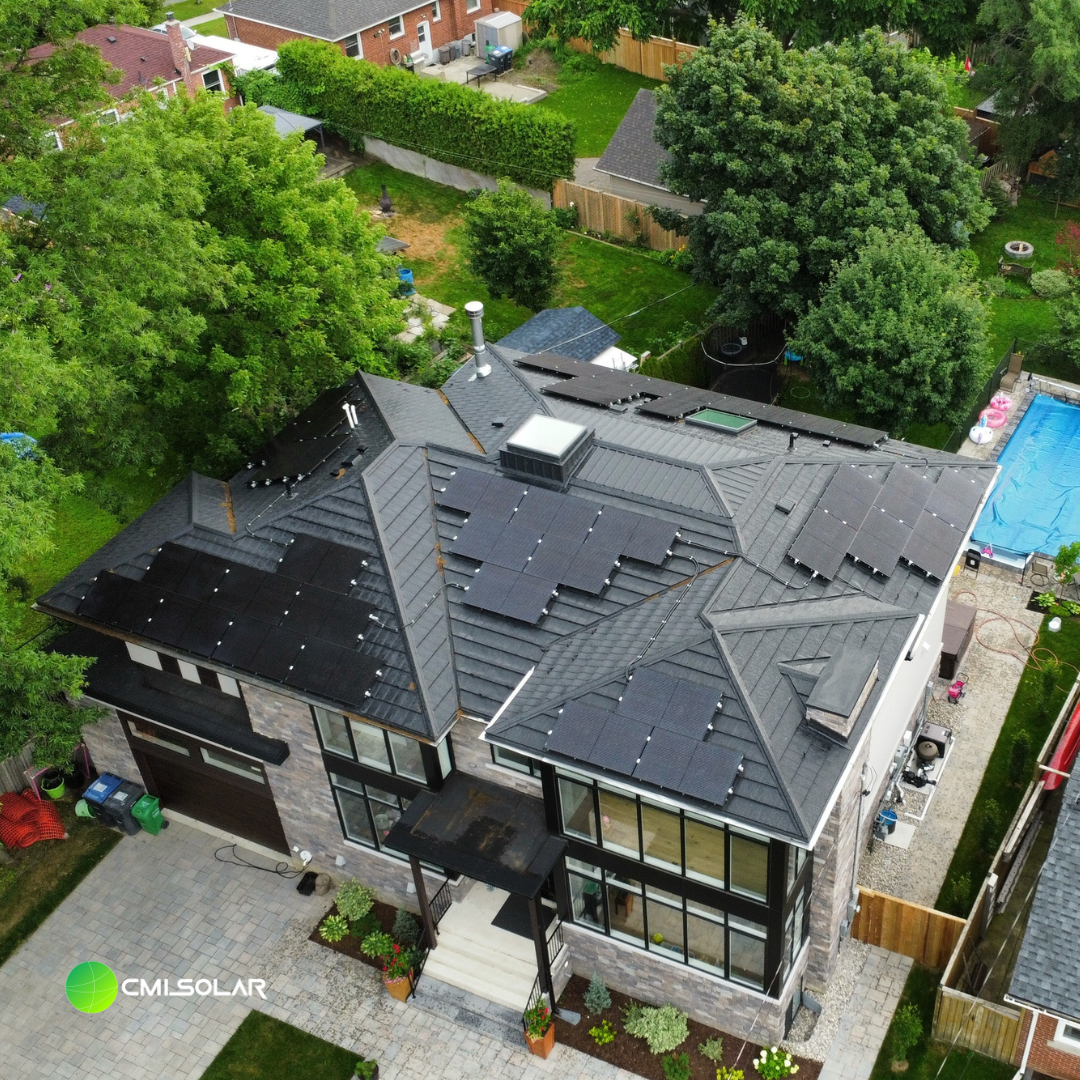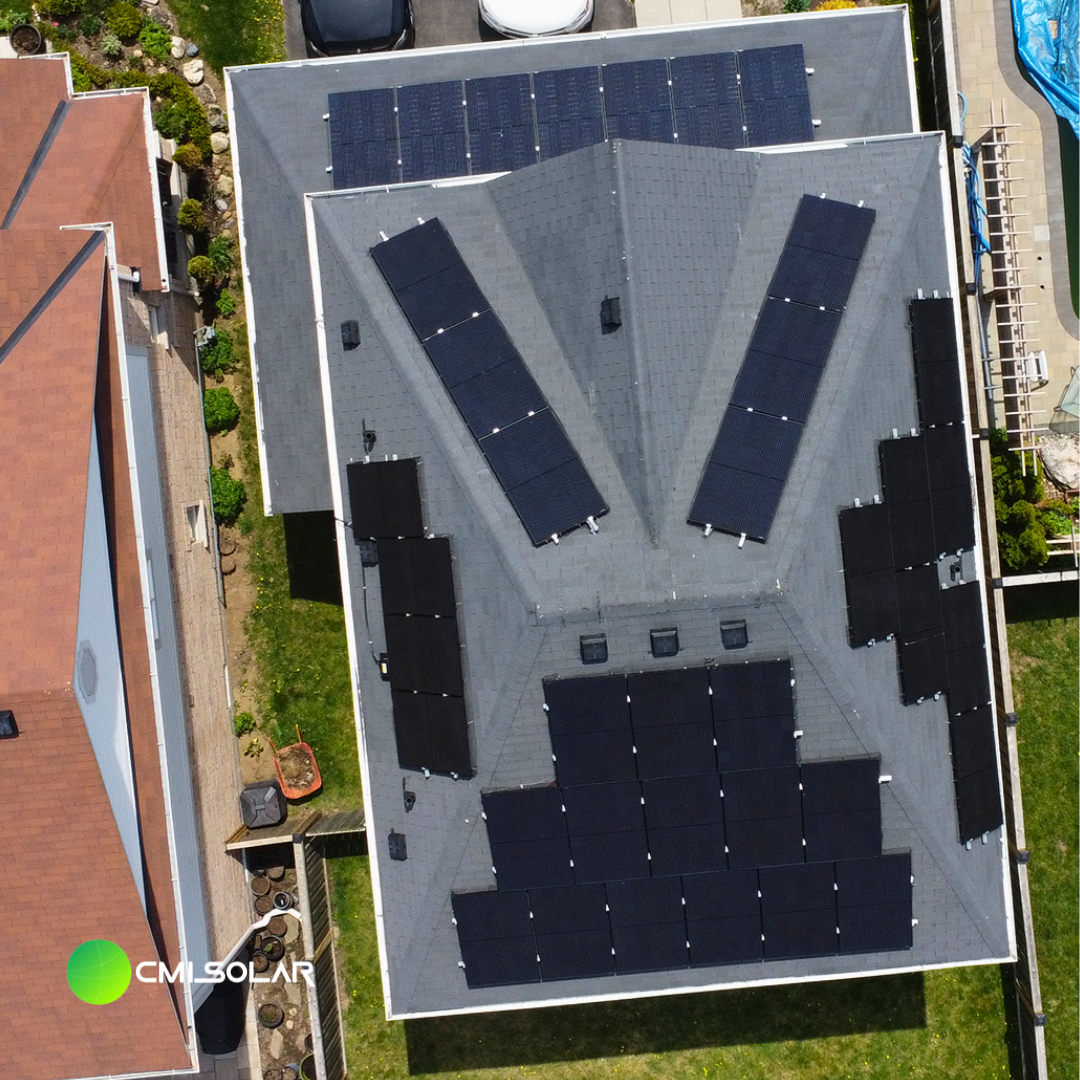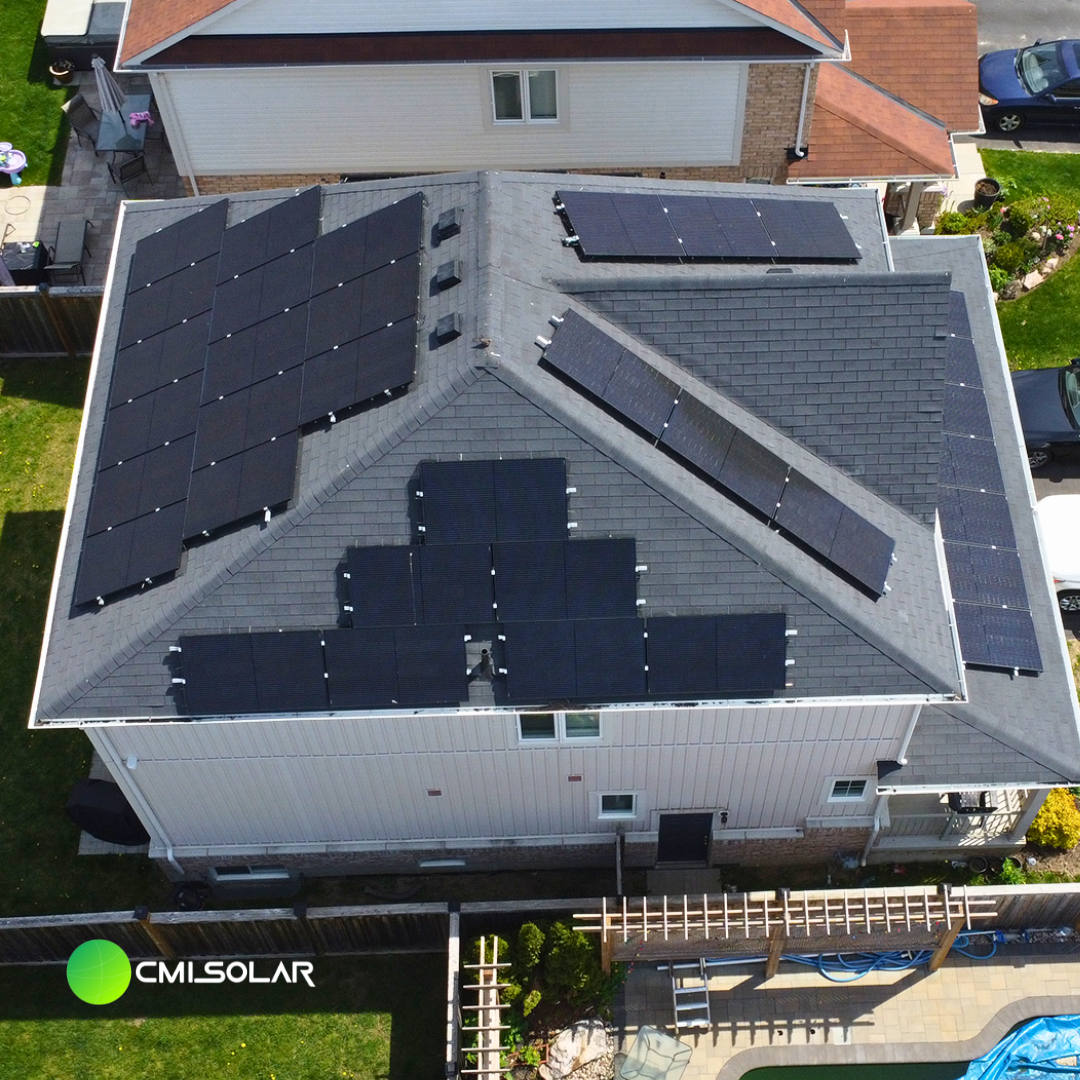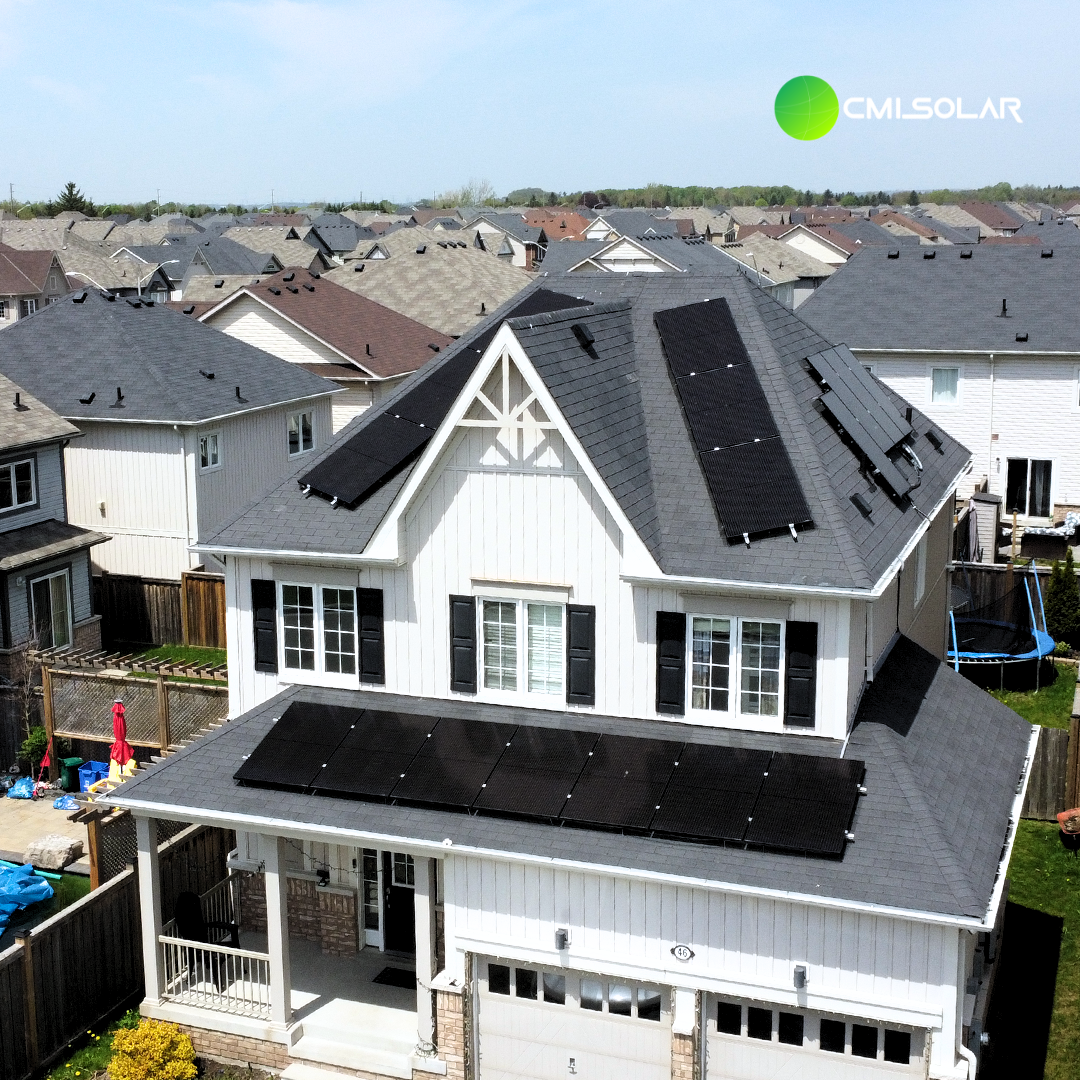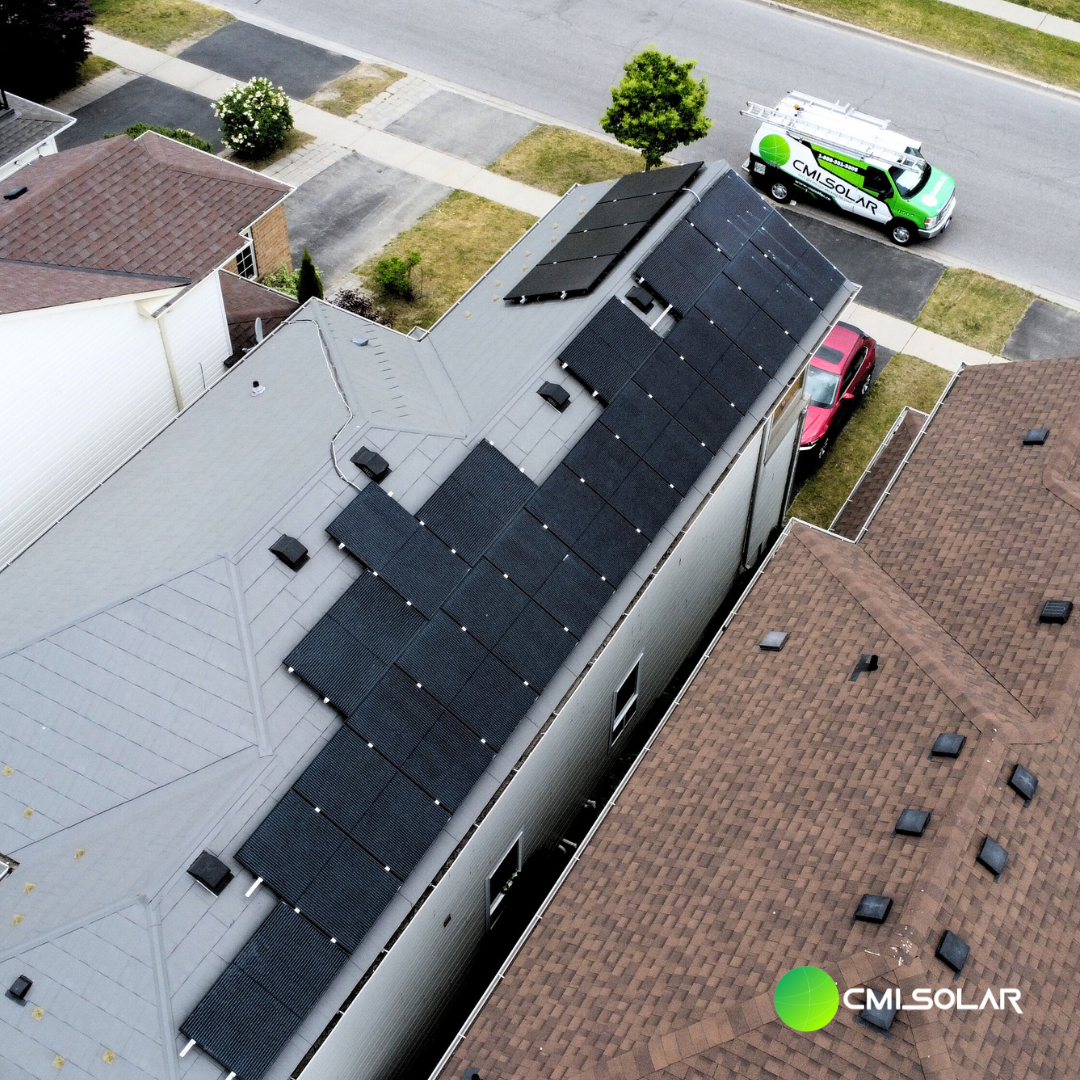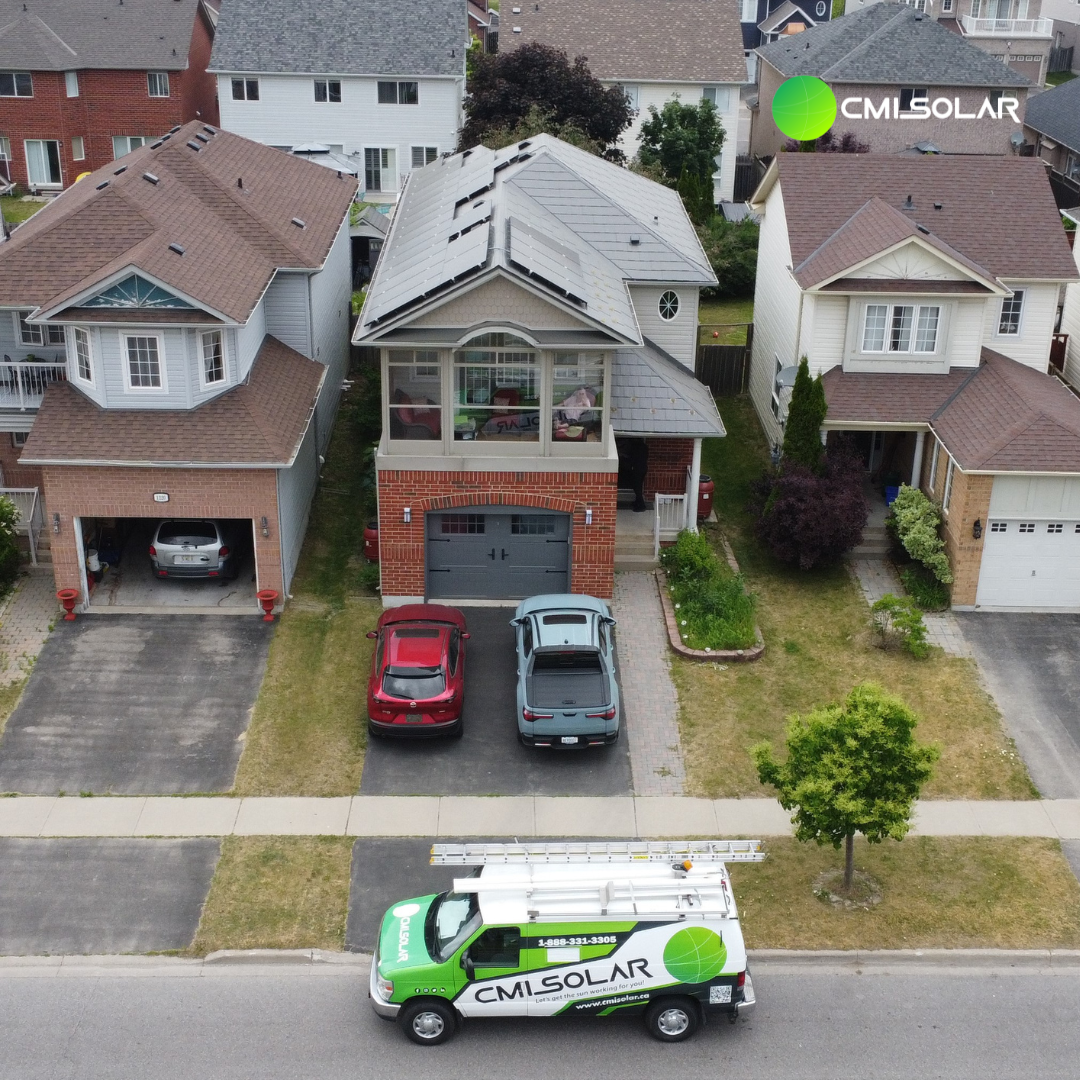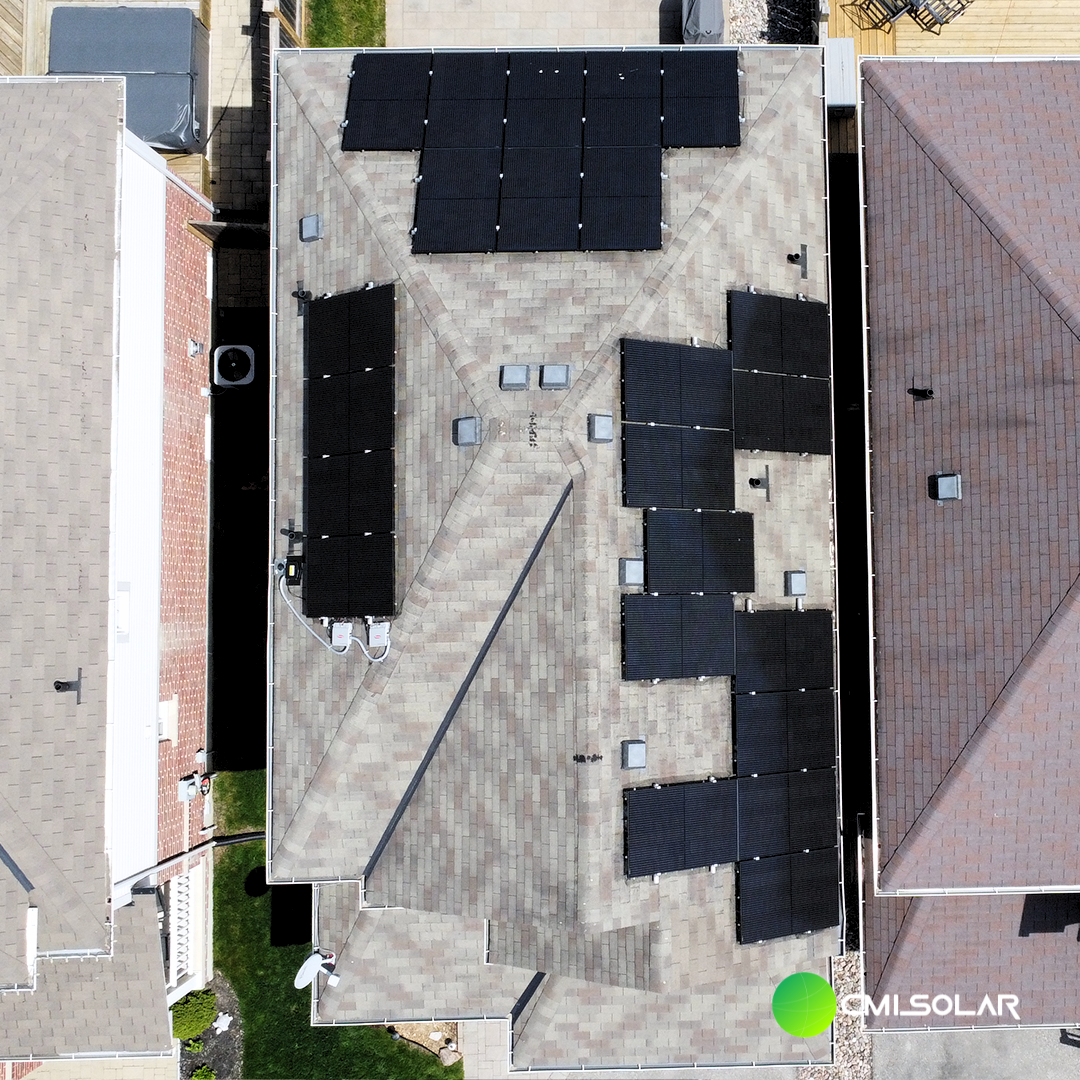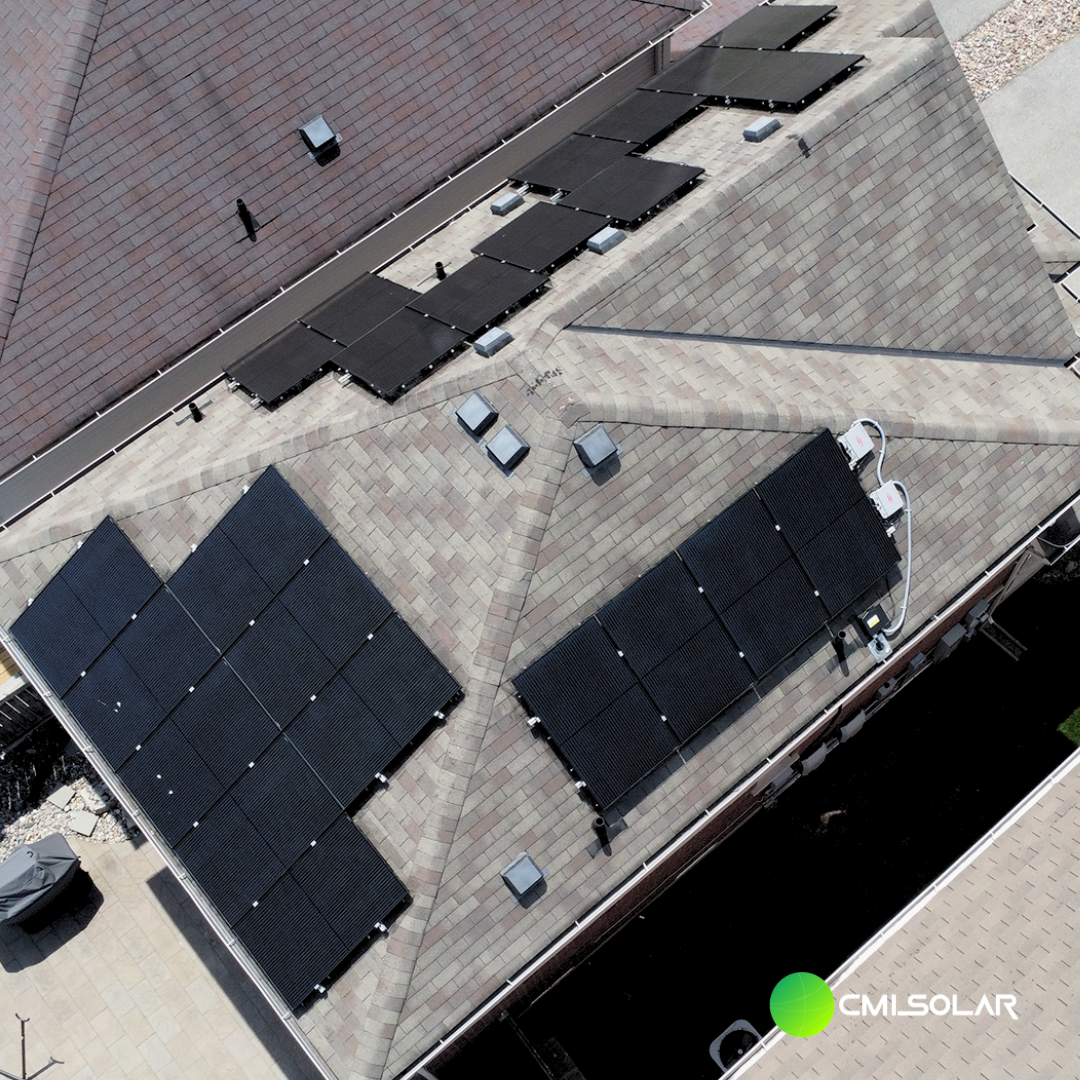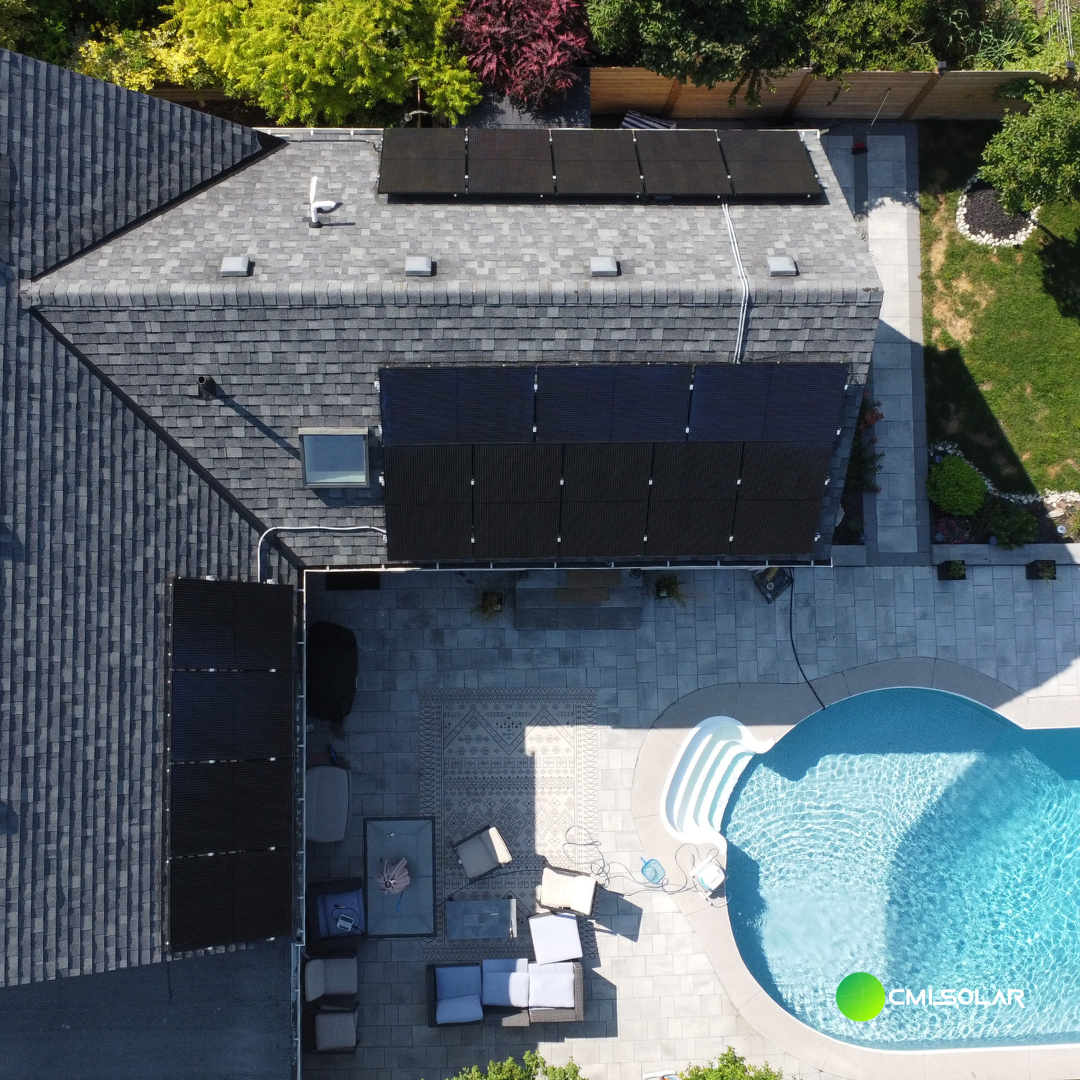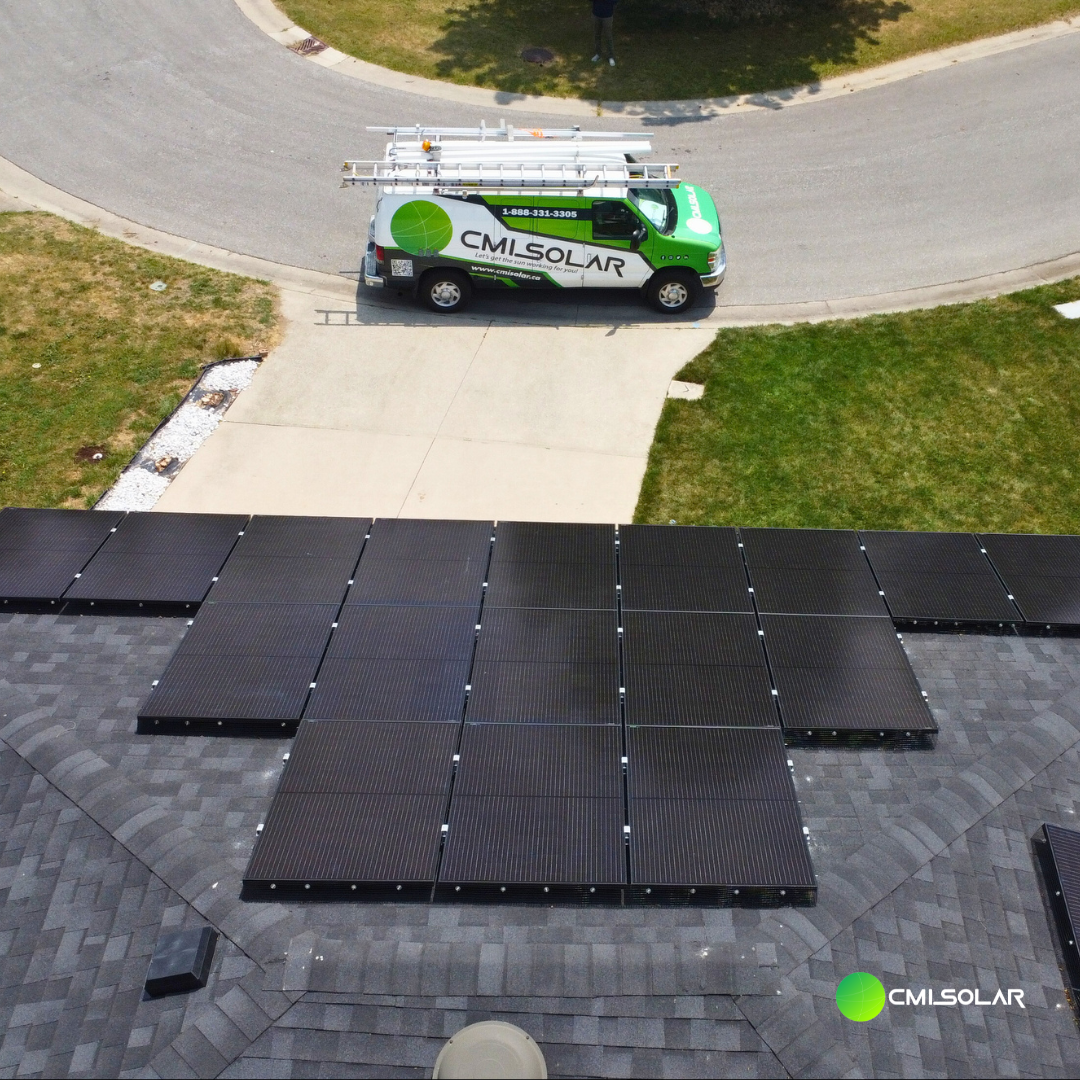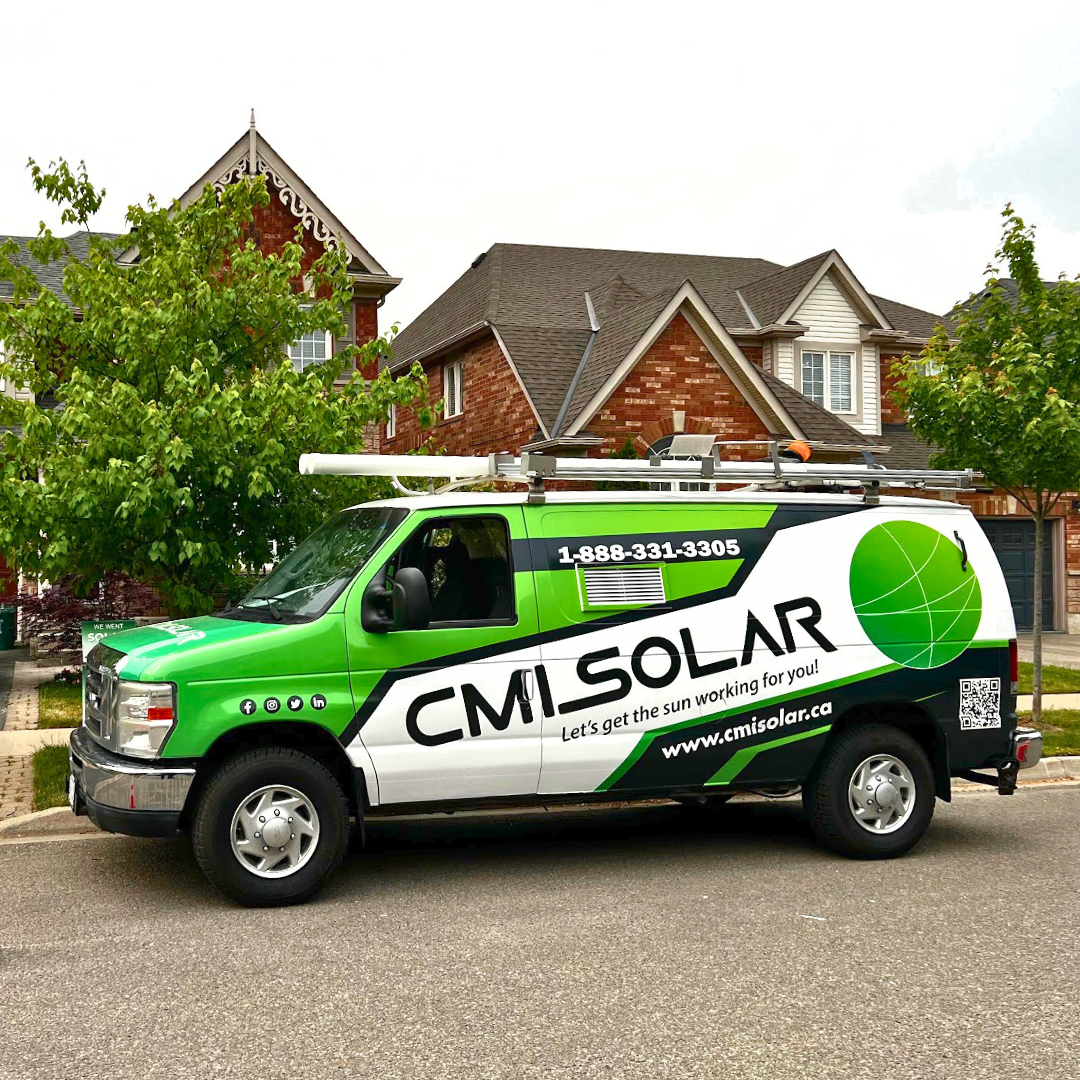Residential Solar
Installation Services
Start your residential solar journey with peace or mind.
Residential Solar Installation Services
As the world around us becomes more electric, future-proof your home with solar and enjoy energy independence for the next 30-40 years. 100% of cars being sold in Canada will be electric by 2035, your home will continue to use electrical devices and energy prices will always increase. Go solar now and power your current and future electrical devices with your own free, renewable energy instead of paying your power company more and more each year
Battery Backup
Having a battery allows the homeowner to take full control of their electricity. They can store energy during the day from the panels and use the power at night when the sun is no longer shining.
A homeowner can automate the battery to only charge the battery during off peak hours to maximize energy savings.
A battery can be used to charge an EV in the evening hours.
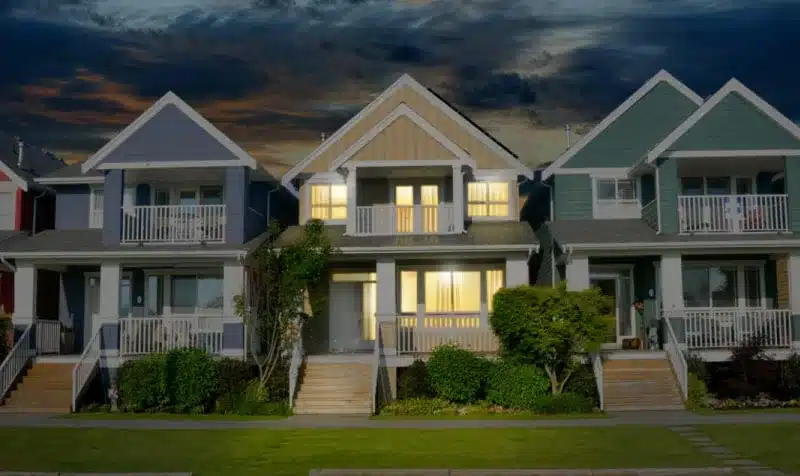
Why Go Solar?
Cost savings:
Solar panels reduce electricity bills by generating clean energy from the sun.
Increased property value:
Homes with solar panels often have a higher market value, making it a smart investment.
Net Metering:
A program that allows homeowners to automatically transfer excess electricity back to their utility provider for credits. Homeowners can use these credits to offset any costs incurred to purchase electricity (night or in the winter months) making the system able to provide up to 100% of their energy needs
Energy independence:
Solar panels allow homeowners to generate their own energy and reduce their dependence on the utility company.
Environmentally friendly:
Solar energy is a renewable resource that produces zero emissions, making it a more sustainable energy source.
Energy reliability:
Solar panels with battery backup provide a backup power source during outages, ensuring a constant source of electricity even during emergencies.
Low maintenance:
Solar panel systems require very little maintenance and have a long lifespan, making it a hassle-free investment.
Increases energy efficiency:
Solar panels can be paired with energy-efficient appliances, reducing the overall energy usage of a home and saving money on electricity bills.
Greener Homes Rebate now goes through Enbridge
$40,000 interest free loan for 10 years is still applicable!
Benefits of Going Solar
Solar power offers more benefits than just low, predictable, and locked-in rates.
Renewable Energy
Solar energy is a clean, sustainable, and virtually inexhaustible source of power that can be harnessed in many different ways. By investing in solar power, individuals and businesses can not only reduce their carbon footprint, but also enjoy a range of financial benefits such as lower electricity bills, tax credits, and incentives.
Energy Bill Reduction
Solar panel systems have been proven to offset energy bill costs by up to 100%. Thanks to the superb efficiency of CMI Solar’s residential installations, homeowners can enjoy having their energy bills virtually sliced in half – or offset entirely, depending on their system.
Energy Storage
Solar panel systems fit with battery systems can store excess energy that is generated during the daytime and use it later to power their homes during the night Batteries can also be programmed to store energy from the grid during off-peak hours, which can help save you even more on energy, especially in the winter months..
Outage Protection
Homes powered by solar panels and equipped with battery systems can enjoy partial or total immunity from power outages and extreme weather conditions due to their lack of dependence on the grid.
Grid Independence
Solar energy boasts the opportunity to go completely independent of the grid, utilizing solar alone to power your home. With solar panels and batteries, you will always have a means to access energy that keeps your home running.
Property Value Increase
Homes fit with solar panel systems are seen as more favourable to prospect buyers, and many residences that have solar panel systems installed. Research shows that property value may increase by $6,000 per every 1kW that is installed.
Frequently Asked Residential Solar Questions
Below are some of our most frequently asked questions about the solar energy solutions that CMI Solar provides for residential property owners.
Give us a call at CMI Solar to inquire about any matters you may have concerning our solar energy solutions. A member of our team would be happy to answer any questions you have or help you begin on your transition to solar energy.
Please contact us with any additional questions you may have about our solar energy solutions -a member of our team will be happy to address any questions and or get you started on your transition to solar energy.
What Temperature Do Solar Panels Stop Working?
The optimal temperature for the utilization of solar in the most efficient manner is 25 degrees Celsius. Temperatures may begin to negatively impact solar panels if the temperature goes above a certain level and below a certain level.When spring turns to summer, the temperature tends to get rather hot. But for homeowners with solar panel systems, you don’t have to worry about your solar panels no longer working. They can continue to produce energy, even if they have heated up to 65 degrees celsius in the direct sunlight. CMI’s residential solar panels are made from extremely durable materials which are made to withstand intense outdoor conditions, including freezing winter weather as well as intense heat. Although efficiency may decline somewhat, solar panels won’t necessarily “stop” working at a certain temperature – more that they may just slightly decrease in efficiency.
What Happens if Lightning Strikes Your Solar Panels?
Although direct lightning strikes are extremely rare, they can happen. Lightning strikes have the potential to inflict serious damage to your solar panels if your system is not adequately protected, since the extreme heat from the lightning has the potential to melt sections of your panels. However, it is a myth that solar panels attract lightning or that lightning will strike your solar panels because they are on your rooftop.CMI Solars experienced installers use a technique called “grounding” to divert the path of lighting and direct it to the ground. We also adhere to every ESA recommendation by installing automated emergency shut-off switches, grounding of all solar components, and comprehensive system testing before any equipment goes live. CMI Solar takes the safety of your home and your solar equipment very seriously and ensures all components are safe for use on a daily basis.As an added, home insurance providers will usually include protection for your solar panel system at a small added cost, which generally includes coverage for lightning strikes.
What Can Destroy a Solar Panel?
As mentioned previously, lightning strikes do have the potential to destroy a solar panel if your system is not adequately protected.However, all CMI Solar projects go through rigorous testing and safety checks. Solar panels are constructed from extremely durable material and glass that is tested rigorously to withstand strikes from falling objects at over 80km/h. Larger hail storms do have the potential to impact solar panels, but solar panels are generally engineered to withstand hail up to the size of golf balls.
Wind damage is another potential cause of solar panel damage, but winds that are intense enough to damage your solar panels are also very rare. In addition, most insurance companies that will insure your solar panels generally include coverage for wind damage.
Vandalism is a potential. This one speaks for itself, and is an intentional action intended to destroy or seriously damage your solar panels. Vandalism may also be covered by your home insurance company.
Solar panels can be walked upon usually with no issue and are made to withstand extreme weather conditions. CMI Solar offers the opportunity to have a technician visit your home once a year to check the status of your solar panel system to ensure it is working properly, as well as to identify any potential issues that could worsen with time.
What Is The Biggest Problem With Solar Panels?
Solar panels are an excellent alternative to traditional, grid-dependent energy usage. However, there can be some drawbacks. One of the largest “issues” that solar energy poses is that systems do not generate energy while the sun is down. A misconception, however, is that solar systems do not generate energy while the sky is overcast or while the panels are covered in snow. Systems can still generate energy even in times where the sun’s rays are “weaker.” During the nighttime, systems can still power your home through battery-stored solar energy or via their local grid. Solar net metering credits can offset the money charged by your utility provider for energy used during the night.
Another concern with solar panels is the land usage. However, most solar PV systems are able to be fixed to existing structures, and residential solar systems are almost always installed on the roof of a home. Solar power that is used to generate transportation or commercial buildings may be installed in low-quality areas or on rooftops, where it doesn’t consume land.
How Many Times A Year Do Solar Panels Need Maintenance?
Solar panels require very little maintenance, especially in the case of residential installations. “Day-to-day” maintenance is non-existent. There’s a common misconception about solar panels, that maintenance is required very frequently to ensure the absolute efficiency of their solar panel system. It used to be that solar panels did require a great amount of maintenance to keep them functioning, but solar panel durability and efficiency has come a very long way since their initial manufacturing. Solar panels nowadays are much tougher and are designed to withstand sleet, snow, rain, hail, and high winds.
Most roofs are tilted, snow and debris tends to run off panels with ease. Some regions with heavy snow or heavy dust may require the occasional clearing, but the matter is relatively insignificant. CMI Solar offers the chance for homeowners to have a technician come visit their home once per year for an inspection and maintenance.
Homeowners should, however, be vigilant for any indication of issues, especially following extreme weather events wherein property damage occurred in their local region or to other parts of their home.
As an added, CMI Solar also offers a 5-year workmanship warranty to all its residential installations, which can give you peace of mind that your solar panel system will be up and operating for many years to come.
How Do Solar Panels Work In The Night?
They don’t. Solar energy systems only generate electricity during the day, when the sun is up and shining. The power from the sun is key to activating solar panel systems, which convert sunshine into electricity. For many people, what this sounds like is that they won’t have power during the night. This isn’t true.
The way that solar panels work is that they are made up of a group of solar cells. Light from the sun comes in as “photons” and hits the solar cells. The sun’s energy dislodges electrons from their positive state, creating an electron flow that flows out of the panels, into inverters, and is used to power your home. Without the sunshine, that process doesn’t happen.
Solar powers may not generate electricity during the night, but they can be used to power your home or even offset the cost of grid energy via solar net metering. The one option is solar batteries. On days where your system produces more energy than you end up using, excess electricity ends up being stored in your batteries, which can be used to power your home at night. Solar net metering is another option, where credits received from channeling excess energy back to your utility can be used to offset the cost of electricity generated by your electrical company.
How Long Do Solar Panels Last For?
Solar panels are extremely durable and long-lasting, and modern makes of solar panels (and the top-of-the-line products that LONGi manufactures) are expected to last anywhere between 30-40 years. This means that solar panel systems created in the 1980s may still be operating at their expected capacity. While also being extremely reliable, solar panel longevity has increased incredibly over recent 20 years, and so systems that CMI Solar installs today may still be working at incredible capacities in the 2050s and 2060s.
The lifetime of solar panels doesn’t entail that your solar panels will just “stop” working after they’ve neared the end of their life expectancy, either. Their energy production may start to decrease by the standard of what most manufacturers consider optimal.
The same as with any technology, solar panels produce less energy with time. This is their degradation rate. The average solar panel’s degradation rate is about 0.3%-0.5%/year.
Of course, other factors may also contribute to the longevity of your solar panel systems, such as your ability to keep your panels clear of debris and damaging materials, ensuring that your panels are regularly monitored/maintained, and that your installation was done by a trustworthy solar provider – like CMI Solar.
Feel free to speak to a Solar Advisor here to understand more about how we monitor your system and ensure optimal performance for decades to come. Enjoy peace of mind and significant ROIs with CMI Solars top-of-the-line equipment, warranties and installation services.
 “
“
Our experience with CMI Solar has been very positive. We really enjoyed their business approach and that they treated the project individually with a non-cookie cutter style. This flexibility allowed us to be more hands on and share our input into the project plans. They were very responsive to any questions and supportive throughout the process. Our system installation went rather smoothly, and CMI’s team was able to respond to any deviation with minimal delay. Additionally, to facilitate the new system our electrical panel needed to be expanded to which, CMI was able to provide the equipment and install with excellent service. Overall, the system works great and can’t wait for more sunny days. Thanks, CMI Solar.
- Anna Pawel Potemscy “
“
I purchased an EV charger and they had it installed quickly. No complaints here.
- Michael B “
“
I was surprised at how quickly CMI Solar was able to install my EV charger. It looks great on my garage wall and charges my Tesla very quickly. Now I never have to pay to charge my car again!
- Joel SmithFree custom quote
